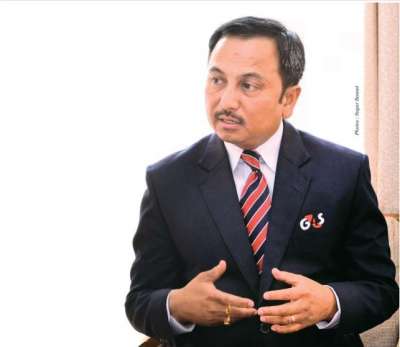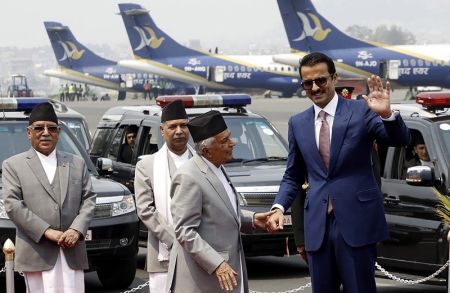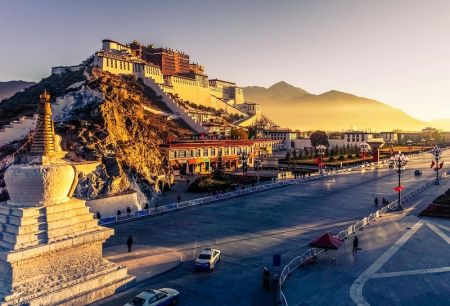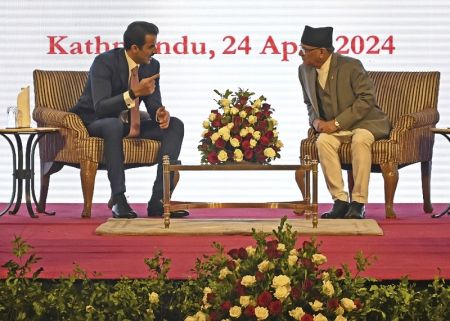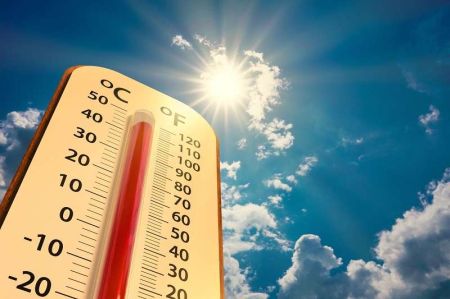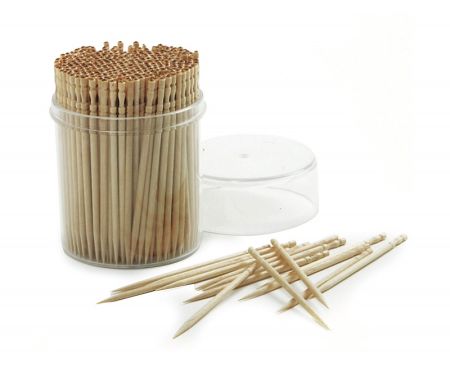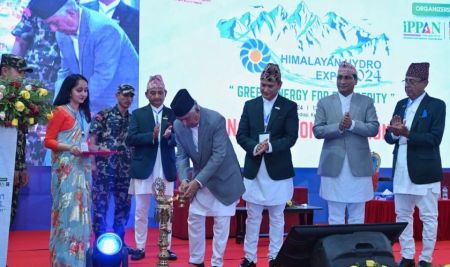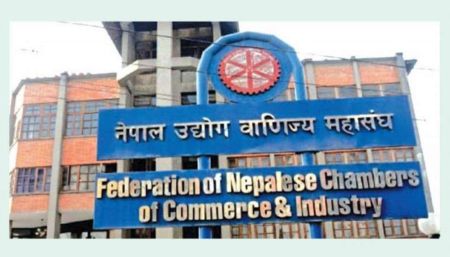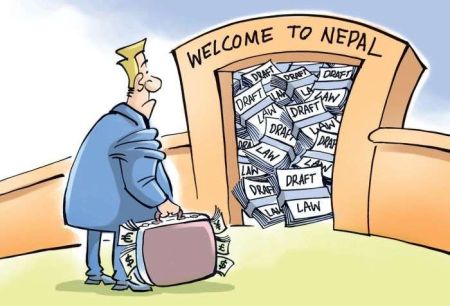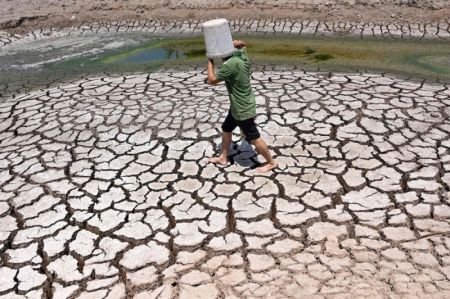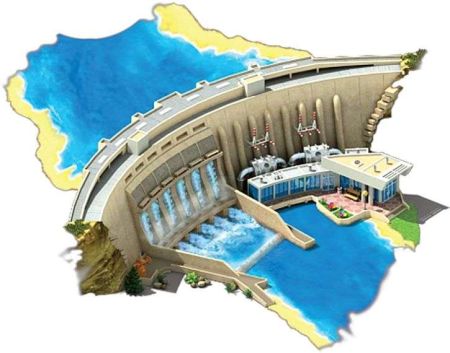We Will Continue Providing Brand Delight To Nepali Consumers
Anant SIyer is the Chief Operating Officer, RPC – East & Nepal at United Spirits Limited (USL), the world’s third largest spirits maker by volume. He has over 27 years of experience in the industry and has earlier handled several key positions since joining the UB group in June 1992. In his current position, he will be responsible for USL’s operations in Eastern India and Nepal. He says, “We would like to participate in the growth that the government envisions for this country and be a part of the evolving Nepal
growth story.”
 You, along with your seniors, had created USL's strategy for Nepal close to a decade-and-a-half ago. What is the purpose of your visit to Nepal this time around?
You, along with your seniors, had created USL's strategy for Nepal close to a decade-and-a-half ago. What is the purpose of your visit to Nepal this time around?
It is to get myself reintroduced to our trade partners in the city as well as throughout the country as I have just taken over as the Chief Operating Officer for Nepal apart from my responsibilities in the eastern part of India. The second reason of my being here is that Gautam Mullick, our Country Manager here, is retiring after 14 long years of being in Nepal. You can call his being here as a circle of life because my seniors and I had made the original strategy for Nepal on behalf of UB Group and Nepal Liquors close to 15 years ago. At that point of time, we had selected him to be posted here.
From very small beginnings, we have now reached a position of strength. In earlier days, the market was small and so was the industry and globalisation was just coming into the subcontinent. With the kind of boom that has happened over the years, drinking of good spirits has also gone up. The Nepali consumer has been exposed to good blend and excellent tamper proof packaging like guala caps etc over a period of time. We have done very well and haven't looked back over the last oneand- a-half decade.
Do you think, USL with its 15 years presence in Nepal, have accomplished the objectives it had set out to achieve?
Objectives in an organisation are set on an annual basis. It all dovetails into the vision we have for the organisation in Nepal. A vision is a long term goal that determines strategy which in turn sets objectives. Our objectives are ever evolving and ever growing so we cannot say that our objectives have been met. Our vision is to continue to grow in Nepal with the industry growth, remain market leaders and continue to provide full product and brand delight to the Nepali consumers.
The consumers experience for our brands has to be superlative and truly international so that the Nepali consumer knows he is getting the same kind of quality and product experience which he will receive anywhere else when he travels. It is an integral part of our organisational DNA that we keep on growing therefore, our objectives are not static and they change in accordance with the changing environment. The annual objectives always become better and more challenging but they all telescope into our overall vision for Nepal. We want to continue as the leading spirits marketer in the country and ensure that we give quality and delightful consumer experience.
How do you assess USL's performance in India and other emerging markets?
If you look at how we have performed in India, you will find that we are very clear about growing. We have close to two-thirds of the market share in India. We are now going to look at emerging markets and do have a huge strategy for markets in South Asia, Africa etc. We intend to grow by providing the consumers with good quality brands which provide delight to the consumers. We do a lot in terms of distribution and schemes to ensure reach and make our products available for every single pocket.
What is your reading of the Nepali market at this point of time?
There is a growing middle class coming up in Nepal for so many years now which is very encouraging. When the economy grows, it helps people feel good and they want to enjoy themselves. We believe that socially responsible alcohol consumption is good in its own way, however, people should be aware. They must follow the laws of the land and that’s what we endeavour. We have a wonderful team of distributors located all over Nepal and they have been with us for many years. We continue to seek their help in ensuring that our products reach our consumers in the pack sizes of their preference which fits their pockets. We are the first company in Nepal to come up with 90 ml, 60 ml, guala caps etc which speaks volume of the fact that we keep on evolving.
UB Group's most visible brand Kingfi sher Beer is not available in Nepal.What could be the possible reasons behind this glaring exclusion?
Kingfisher Beer is actually managed by our sister organisation United Breweries and as far as I know, they had a presence in Nepal at a point of time. However, I am not aware of the latest developments in terms of its strategy for Nepal. Kingfisher is a wonderful and truly international brand and one of the real successes of this subcontinent. You will find it in many countries such as the US, Canada, England, France, Italy, Singapore, Hong Kong, Thailand etc. Kingfisher Beer is available either in restaurants that is on-trade or as off-trade. On my part, I can certainly communicate with my colleagues in the Breweries Division about the huge latent demand for the brand here. I am sure that they would want to look at this possibility again.
How have you fared on your liquor brands in this country?
Luckily for us, most of our brands have succeeded pretty vigorously. Our success has been in premium whisky segment like Antiquity and Signature both being brand leaders. McDowellâ's No 1 and McDowell's Platinum have also done well while Blue Ribbon Gin is the sole leader in its category. We have received a setback in the Vodka segment but it's only a matter of time before we bounce back. Even though we are a small player in the Rum category, we have done well for ourselves and we will intend growing as there is definitely a market for Rum here.
Tell us a little about the competition you face from some other renowned brands available in Nepal.
Competition has come and some of the competitor brands have been doing well but that's how business is. We don't fear the competition because as an organisation, we evolve with the consumers and step ahead. If you remember, when we launched Signature Whisky, it was Nepal’s best whisky produced at that time. Today, we are right there with our successful brands Antiquity Red and Antiquity Blue. Our Antiquity Blue is as good as any value scotch available in the market and can take them head on. I believe that competition is always healthy, it keeps us on our toes and we respect our competition.
The reason for the success of our group is that we are a very humble and straight shooting organisation. We don't allow our domination of any category or market to ever get into our head and don't browbeat or pressurise. Instead, we believe in growing with the market and ensure that our partners in progress the trade partners, retailers etc are conducting their businesses successfully. We keep all our stakeholders internal as well as external happy. In a market scenario, ups and downs always happen and market positions keep changing. Competition has grown over the years just as we did but if you look at the size, we have close to two-thirds of the market share in Nepal. Our objective is that we not only reach two-thirds in terms of volume but also in terms of earnings. In this endeavour, we have ensured that in the premium segment, we have a huge share of the market.
As for the prestige segment, it's only a matter of time that we regain the market share which we have lost over the last five years or so. I welcome competition as it does not allow complacency to set in. We would all like to be one step ahead of competition by ensuring product improvement and everything else that we do in the market.
You just mentioned that you would like to reach two-thirds in terms of earnings too. How do you go about achieving that?
That is certainly our endeavour but it is not to fufill through the two-thirds market share that we enjoy. We improve our bottom line by ensuring that the products we sell are more premium category which we have succeeded in and will continue to succeed at. We do efficiencies in manufacturing and selling so there are ways and means to ensure that our bottom line gets affected. I am not even suggesting remotely by any means that one side should curb it so that the other side should get it. The intent is that if the consumer gets a product at the right price, the market grows and so does the revenue.
Now that you will be looking after Nepal operations for some time to come, what would be your expectations from the government here?
We only hope that the government helps the industries such that it can help the revenue. As you know, the government also gets its last share of revenue from excise and taxes but year-on-year, rising taxes substantially will eventually lead to killing the golden goose. Every government around the world is cash strapped and we understand that Nepal is no exception but our prayer to the government is not to tax indiscriminately. Because the higher you tax, it gives the unscrupulous elements the opportunity to make spurious products. Given the arbitrage of the substantial tax amount, these elements enter into the market. They may not sell their products in the cities where there is better policing and supervision but they definitely sell them in the rural areas where people are neither very literate nor do they have the choice. Normally, these products are sold very cheap but they have unnecessary side effects. It also allows illegal activities to happen and as a result, there is an increase in corruption.
A spurious manufacturer takes advantage of this arbitrage and makes a lot of money. In the bargain, everybody loses right from the consumer to the government and us too as an industry. We understand that by all means, there is a proportion which needs to go to the government but it should be reasonable. At the end of the day, the government is also here to work for the welfare of its citizens so it needs money. But as businesses, we cannot keep on hiking prices because it will go over a certain tide. If the inflation is 10 per cent and the prices go up by 20 per cent, people are still not going to stop drinking. But one has to take a very long term view on this rather than a short term fix.
As I said a short while ago, the revenue grows when the market grows otherwise the revenue regresses. As prices increase, consumers tend to drink lower category drinks instead of premium ones. Since the excise duty is less in lower categories, the government tends to earn lower per case or bottle than in the higher categories. Hence, the government's revenue regresses eventually. I would also like to add that in this country, VAT is a pure form VAT which is good.
When you charge tax on small items of daily use such as biscuits, soaps, toothpastes etc, the tax is small so people don't mind paying. But when the tax amount is higher, people don't like paying which is human tendency anywhere in the world. Our suggestion is: please charge your tax but don't charge multiple times. The sales tax people can collect taxes from say, 100 distributors, instead of collecting them from 47,000 retailers that we have spread across Nepal. It will enable the government collect taxes easier and cleaner and ultimately, it's the same amount.
Being an Indian conglomerate, could you single out the most challenging aspect of doing business in Nepal?
First and foremost, we are very multinational in our nature now as we are present in many countries. I would say that our roots are sub continental instead of only being Indian. When this group was born many years ago through acquisitions followed by start up ventures, we had our presence in many markets. For example, we had a small business in Nepal going on that we reactivated 15 years ago. The fruits of that success and strategy are now here after dealing in Nepal over a period of time. There have been lots of challenges but we have weathered them. We have learnt to cope up and adapt to the market and that's a great asset of being from the sub continent. I don't think we are very different from each other in the way we look at life, for example, our beliefs in god, family and value system etc. We follow a similar culture even though we may speak different languages we have so many languages in India too. It is easier to adapt much faster being from the sub continent. We have always maintained healthy relationships with all our stakeholders in Nepal the authorities, trade partners, key opinion leading consumers, associations etc.
Do you see yourself making greater inroads into this market? How do you plan to treat this country as a market in the future?
We are planning to launch many more brands in the premium range in Nepal since it is a very critical market for us. You must be aware that we also have our own distillery in Biratnagar and we are investing in it on a continued basis. It is important for us to ensure that we continue to remain leaders and grow with the market. We will continue to treat the market in Nepal with respect as we have always done. The market has tremendous potential as always and lot of growth opportunities are available. We will continue to ensure that we invest in brands in this country and that our consumers are happy and satisfied with our brands. In this way, all stakeholders consumers, trade, authorities and the company will remain aligned and satisfied which is very critical for us. We would like to participate in the growth that the government envisions for this country and be a part of the evolving Nepal growth story.


